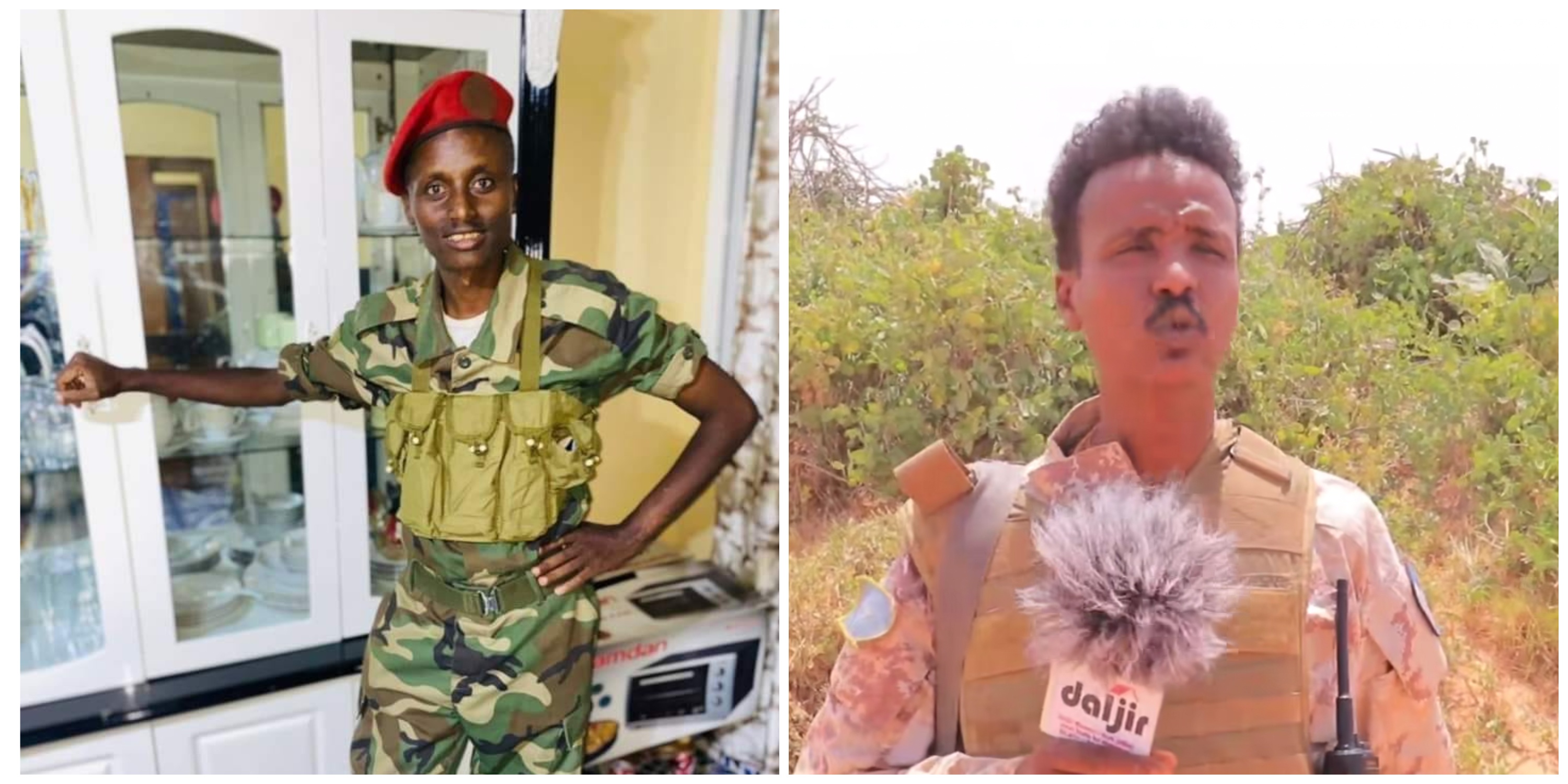
Fragile Alliances and Fierce Loyalties: The deepening quagmire of the Laascaanood conflict
|
21 July 2023 07:11

LAASCAANOOD (HORN OBSERVER/KAAB TV) – On July 18, Somali Federal Darwish police Colonel Cadaawe Sheikh Idiris, a brave officer trained by the Italian Carabinieri with the support of multiple international organizations, lost his life in the Laascaanood fight.
Cadaawe had made a fateful decision to leave the Somali Federal Darwish and join the ranks of the Somaliland fighters, facing the Dhulbahante clan militia, ultimately meeting his demise.
In the wake of Cadaawe’s death, a relative, Jama Mohamed Ibrahim, known as Haarane, mourned the loss of his dear friend and brother. "Death is inevitable, and only God remains. May God have mercy on Cadaawe Sheikh Idiris,” he solemnly expressed.
The Laascaanood conflict had claimed the lives of numerous officers before Cadaawe, but his tragic fate revealed a disheartening reality of trained officers choosing to align with their clans to perpetrate violence against fellow civilians and trigger mass displacement. In a cruel twist, on the opposing side of the battle stood another Somali Federal Darwish police colonel, Abdirisaq Bihin, now serving as the commander of the communications unit for the Dhulbahante clan fighters in Laascaanood.
Both men were part of the Federal Darwish, a robust civilian unit of the Federal Somali Police Force who have been principally trained in Djibouti in April 2022 at the request of the Government of Somalia with funding by the EU Delegation to Somalia, the European Union Capacity Building Mission in Somalia (EUCAP Somalia), the European Training Mission in Somalia (EUTM Somalia), and by the United Nations Police (UNPOL).
Speaking defiantly at the frontline in the Maraaga mountains, east of Laascaanood, Colonel Bihin boasted about confronting his former comrade, stating, "Just 10 days ago, he called me and said, ‘Either I will catch you or you will die, Mr. Bihin.’ Just go back to Mogadishu.”
"Eventually, we killed him and the right cause has won,” Bihin added.
The two friends-turned-enemies epitomized the profound hostility fueling the conflict, each defending what they believed to be their legitimate identity and ancestral lands.
The trend of Somali government officers and soldiers participating in the war, which erupted in early February and caused more than 150 dead and the displacement of close to 200,000, has been on the rise. Recently, a unit from the Turkish-trained military of Gorgor joined the Dhulbahante fighters, signifying a troubling escalation.
As the battle rages on in Laascaanood, more men from the police and military, trained by Turkey, the EU, and the United States, are expected to join the fray. Some have already arrived, and casualties are being reported on both sides.
Meanwhile, Somaliland is reinforcing and fortifying its fighters in Goojacade, where a decisive and protracted war has been unfolding for weeks.
Despite fervent calls for an end to the war, they seemed to fall on unresponsive ears. Practically, the pleas appeared to lack substantial impact, as the Laascaanood conflict continues to persist.
In reality, this Laascaanood war represents not only the failure of genuine reconciliation efforts among Somalis but also an alarming manifestation of power struggles, clan-based abuses, and deep-seated clan animosities that have overflowed their bounds. The central issue boils down to a power dynamic—where one side vying to assert control over the other, a sentiment palpable among the people in the streets of Laascaanood.
Moreover, the Laascaanood war has been significantly influenced by international actors. The presence of well-equipped fighters trained and armed by the EU, UN, Turkey, and even the UAE, underscores their involvement in the ongoing hostilities. Consequently, until these external entities cease the supply of both personnel and weaponry to the frontlines, the Laascaanood conflict is unlikely to see a resolution.
The situation remains complex, with fragile alliances and deep loyalties complicating the pursuit of peace in Laascaanood and the wider Somalia.
Leave a comment
- Popular
- Rated
- Commented
04/11/2021 - 11:05:02
28/05/2024 - 15:44:10
02/12/2021 - 11:34:53
01/03/2021 - 09:00:37
Opinions
18/05/2025 - 16:26:37
15/05/2025 - 20:16:04
Politics
17/04/2025 - 01:58:17
13/04/2025 - 10:59:05
Terror Watch
30/05/2025 - 00:04:19
18/05/2025 - 00:37:46
 0
0 




































Fragile Alliances and Fierce Loyalties: The deepening quagmire of the Laascaanood conflict
LAASCAANOOD (HORN OBSERVER/KAAB TV) – On July 18, Somali Federal Darwish police Colonel Cadaawe Sheikh Idiris, a brave officer trained by the Italian Carabinieri with the support of multiple international organizations, lost his life in the Laa